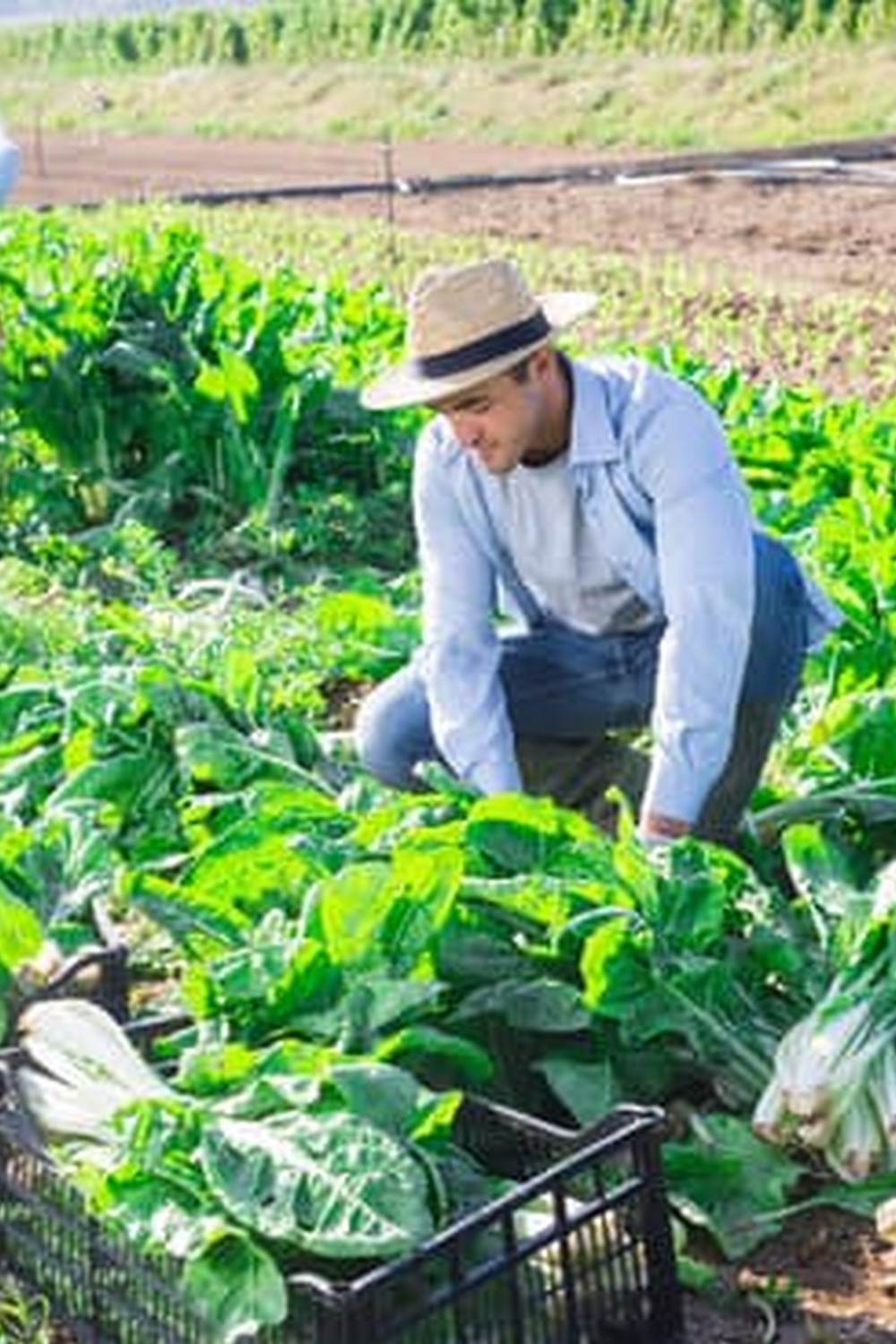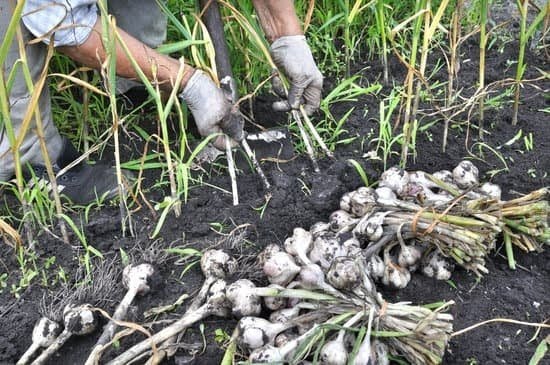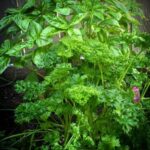Why are vegetable gardens good for the environment? Vegetable gardening isn’t just about growing your own food – it also has a positive impact on the environment. From reducing carbon footprint to promoting biodiversity and sustainable living, vegetable gardens play a crucial role in creating a healthier planet. In this article, we will explore the various ways in which vegetable gardens benefit the environment and promote sustainable farming practices.
One of the key reasons why vegetable gardens are good for the environment is their ability to reduce our carbon footprint. By growing our own produce, we can minimize the need for transportation and packaging, thus lowering greenhouse gas emissions. In addition, homegrown vegetables often require less energy-intensive methods of production and distribution, making them an eco-friendly choice for environmentally-conscious consumers.
Furthermore, homegrown vegetables contribute to soil health, as they are often grown using organic gardening methods. This not only benefits the quality of the soil but also promotes biodiversity and supports healthy ecosystems. By understanding the impact of vegetable gardens on the environment, we can make informed choices about our food consumption and work towards a more sustainable future.
Benefits of Reducing Carbon Footprint Through Vegetable Gardening
Reducing carbon footprint through vegetable gardening is one of the many ways individuals can contribute to environmental sustainability. Vegetable gardens play a crucial role in reducing carbon emissions by promoting locally sourced produce and cutting back on the need for long-distance transportation. By growing your own vegetables or supporting local farmers, you can significantly reduce the carbon footprint associated with food production and distribution.
Reduced Emissions From Transportation
One of the main benefits of vegetable gardening in terms of reducing carbon footprint is the decrease in emissions from transportation. When vegetables are grown in home gardens or on local farms, there is less reliance on long-haul transportation to bring produce to consumers. This means fewer emissions from vehicles and airplanes, ultimately contributing to a cleaner environment.
Carbon Sequestration
Another reason why vegetable gardens are good for the environment is that they facilitate carbon sequestration. Through photosynthesis, plants absorb carbon dioxide from the atmosphere and store it in their tissues and in the soil. By growing more vegetables, especially perennial crops such as fruit trees or perennial vegetables, individuals can actively contribute to removing excess carbon dioxide from the atmosphere.
Reduction of Synthetic Fertilizers and Pesticides
Furthermore, vegetable gardens typically utilize organic farming methods that minimize the use of synthetic fertilizers and pesticides. These chemicals not only contribute to air and water pollution but also release greenhouse gases during their production. By opting for organic gardening practices, individuals can reduce their carbon footprint and promote a healthier environment for future generations.
Soil Health and the Benefits of Homegrown Vegetables
One of the main reasons why vegetable gardens are good for the environment is their positive impact on soil health. When we grow our own vegetables at home, we have more control over the quality of the soil, which can lead to healthier and more nutrient-rich produce. Here are some ways in which homegrown vegetables contribute to soil health:
- Reduced need for chemical fertilizers: By using natural compost and organic gardening methods, home gardeners can reduce their reliance on synthetic fertilizers, which can be harmful to the environment.
- Preservation of beneficial microbes: The use of pesticides and herbicides in industrial agriculture can destroy important microorganisms in the soil. Homegrown vegetables, on the other hand, help preserve these beneficial microbes that are essential for maintaining healthy soil.
- Prevention of erosion: Vegetable gardens can help prevent soil erosion by providing ground cover and promoting a strong root system that holds the soil in place.
In addition to benefiting soil health, cultivating homegrown vegetables also contributes to a reduction in carbon footprint. When we grow our own produce instead of relying on commercially-grown vegetables that are transported long distances, we not only reduce greenhouse gas emissions from transportation but also support sustainable farming practices. Ultimately, vegetable gardens play a crucial role in promoting environmental sustainability and should be encouraged as part of efforts to protect our planet.
Utilizing Organic Gardening Methods and Their Positive Impact on the Environment
Vegetable gardens have a significant impact on the environment, and one of the ways they do so is through the utilization of organic gardening methods. Organic gardening involves growing fruits and vegetables without the use of synthetic pesticides or fertilizers, which can have detrimental effects on the environment. Instead, organic gardeners focus on building healthy soil, promoting biodiversity, and using natural methods to control pests and diseases.
There are several positive impacts of utilizing organic gardening methods on the environment:
- Reduction of harmful chemicals in the environment: By avoiding synthetic pesticides and fertilizers, organic vegetable gardens prevent harmful chemicals from leaching into the soil and waterways, ultimately reducing pollution.
- Promotion of soil health: Organic gardening techniques such as composting and crop rotation help improve soil structure and fertility, leading to healthier ecosystems and increased carbon sequestration in the soil.
- Support for beneficial insects and wildlife: Organic gardening creates a more diverse and balanced ecosystem, attracting beneficial insects like pollinators and natural predators that contribute to overall environmental health.
In addition to these benefits, organic gardening methods also promote sustainable farming practices that protect the environment for future generations. This is why vegetable gardens are good for the environment – they showcase how it is possible to grow nutritious food while minimizing negative impacts on our planet. By adopting organic gardening methods in our own vegetable gardens, we can contribute to a healthier, more sustainable environment.
Water Conservation and the Role of Vegetable Gardens in Sustainable Farming
Vegetable gardens play a crucial role in sustainable farming by promoting water conservation. Traditional agriculture often relies heavily on irrigation, which can lead to excessive water usage and strain on local water sources. In contrast, vegetable gardens typically require less water than large-scale monoculture crops. This is because diverse vegetable plants have different water needs, and with proper planning, gardeners can use water more efficiently.
A study conducted by the Food and Agriculture Organization (FAO) found that vegetable gardens have the potential to reduce water consumption by up to 40% compared to conventional farming methods. By using techniques such as mulching, drip irrigation, and rainwater harvesting, gardeners can further minimize their environmental impact while still producing high yields of nutritious produce.
In addition to reducing overall water consumption, vegetable gardens also contribute to improved soil quality and reduced runoff. Healthy soils are better able to retain moisture, which means less water is wasted through runoff. Furthermore, the organic matter in well-maintained garden soils acts like a sponge, helping to store water during dry periods and mitigate the effects of drought.
| Benefit | Data |
|---|---|
| Reduction of Water Consumption | Up to 40% compared to conventional farming methods (FAO) |
| Improved Soil Quality | Better moisture retention and reduced runoff |
Biodiversity and the Importance of Growing a Variety of Vegetables
When it comes to vegetable gardens and their impact on the environment, biodiversity plays a crucial role. By growing a variety of vegetables in your garden, you are contributing to the preservation of different plant species and the overall health of the ecosystem.
This diversity helps to support pollinators such as bees and butterflies, which are essential for the reproduction of many plants. Additionally, growing different types of vegetables can also help attract beneficial insects that can naturally control pest populations, reducing the need for harmful chemical pesticides.
Furthermore, cultivating a diverse range of vegetables in your garden can also contribute to soil health. Different plants have varying root structures and nutrient needs, which can help prevent soil depletion and erosion. By rotating crops and planting a variety of vegetables, you can improve soil structure and fertility while reducing the risk of disease build-up in the soil.
In addition to supporting biodiversity and soil health, growing a variety of vegetables also provides numerous other environmental benefits. It can help reduce greenhouse gas emissions by promoting sustainable agricultural practices and minimizing the need for transportation. Locally grown produce from diverse vegetable gardens often requires less packaging and refrigeration compared to commercially produced vegetables that are transported over long distances. This reduces energy consumption and carbon emissions associated with food miles.
Reduction of Food Miles and the Environmental Benefits of Consuming Locally Grown Produce
Consuming locally grown produce offers a wide range of environmental benefits that can significantly reduce the carbon footprint associated with food production and transportation. When individuals choose to support local farmers and consume vegetables grown in their region, they are contributing to a more sustainable and eco-friendly food system.
Reduced Carbon Emissions
One of the main reasons why vegetable gardens are good for the environment is that they help reduce carbon emissions associated with long-distance transportation. When vegetables are grown locally, there is less need for extensive transportation, which ultimately results in lower emissions from fuel consumption. This reduction in carbon emissions helps to minimize the environmental impact of food production and contributes to the fight against climate change.
Support for Local Agriculture
By consuming locally grown produce, individuals are also supporting local agriculture and the preservation of green spaces within their communities. This can help prevent urban sprawl and the conversion of valuable farmland into non-agricultural uses. Additionally, supporting local farmers fosters a sense of community and encourages sustainable farming practices that prioritize environmental stewardship.
Promotion of Sustainable Land Use
Choosing to consume locally grown vegetables promotes sustainable land use by reducing the demand for large-scale industrial agriculture, which often leads to habitat destruction, water pollution, and soil degradation. By prioritizing locally sourced produce, individuals can contribute to healthier ecosystems and promote more responsible land management practices.
In summary, consuming locally grown produce from vegetable gardens is not only beneficial for personal health but also has a positive impact on the environment. From reducing carbon emissions to supporting sustainable land use, the choice to eat locally grown vegetables plays a vital role in promoting ecological sustainability.
Vegetable Gardens as a Tool for Combating Food Waste and Promoting Sustainable Living
In conclusion, vegetable gardens play a crucial role in promoting environmental sustainability. By reducing the carbon footprint through homegrown produce, individuals can contribute to a healthier planet. Organic gardening methods not only benefit personal health but also have a positive impact on soil and biodiversity.
Water conservation is another advantage of vegetable gardens, as sustainable farming practices help conserve this essential resource. Additionally, growing a variety of vegetables promotes biodiversity and helps maintain a balanced ecosystem. Consuming locally grown produce from vegetable gardens also reduces food miles and supports the local community while reducing environmental impact.
Moreover, vegetable gardens serve as a valuable tool in combating food waste and promoting sustainable living. By growing one’s own produce, individuals can better manage their food consumption and reduce waste. Overall, vegetable gardens provide numerous benefits for the environment, making them an important aspect of sustainable living.
Frequently Asked Questions
How Do Vegetable Gardens Help the Environment?
Vegetable gardens help the environment in various ways. They contribute to reducing greenhouse gas emissions by capturing carbon dioxide. Additionally, they promote biodiversity and provide habitats for insects and birds, thus supporting the local ecosystem.
Why Are Vegetables Good for the Environment?
Vegetables are good for the environment because their production generally requires less water and land compared to animal agriculture. This means that growing vegetables can help conserve precious resources while minimizing habitat destruction and deforestation.
How Does Vegetable Farming Impact the Environment?
Vegetable farming can have both positive and negative impacts on the environment. On one hand, it can lead to soil erosion and degradation if not managed sustainably. On the other hand, vegetable farming can contribute to healthier soils, enhance biodiversity, and even improve water quality through responsible agricultural practices like crop rotation and organic farming methods.

If you’re looking to get into vegetable gardening, or are just looking for some tips on how to make your current garden better, then you’ve come to the right place! My name is Ethel and I have been gardening for years. In this blog, I’m going to share with you some of my best tips on how to create a successful vegetable garden.





